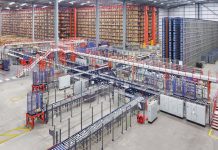
Australia could boost its economy by up to $235 billion through targeted investment in artificial intelligence, according to a new report released by the Australian Academy of Technological Sciences and Engineering (ATSE).
The report, produced by ATSE in partnership with global consulting firm Kearney, warns that Australia is falling behind other major economies, which are investing at least ten times more in AI infrastructure and workforce development.
ATSE said the findings outline a clear pathway for Australia to strengthen its AI capabilities and capture economic benefits, provided action is taken quickly.
“AI is a swift-moving technology and will be critical to Australia’s future security, resilience and independence,” ATSE CEO Kylie Walker said.
She emphasised that investment must be aligned with national interests, adding that building sovereign capability is essential.
“Australia already has the ingredients to become an AI powerhouse – but we need targeted policy and investment to make that happen,” she said.
The report recommends several priority actions, including establishing a network of regional AI factories to link researchers, industry, talent and government; developing a national AI talent pipeline supported by population-scale training; and creating specialised AI models and national datasets tailored to Australian needs in areas such as geoscience and health.
With an estimated additional $5 billion in government investment over five years, the report says AI could increase Australia’s GDP by between 6 and 8 per cent.
Kearney Global Data & AI Lead Anshuman Sengar said Australia has a narrow window to act. “Australia can significantly uplift its productivity and compete at the technological frontier with AI — if it acts now,” he said. “Other governments are already investing billions to secure their AI economies and Australia must not fall behind.”
Kearney Senior Director for Data & AI Tomas Ptacek highlighted the importance of workforce preparation.
“Re-skilling and up-skilling are the most underestimated drivers of AI adoption,” he said. He added that government leadership could support a nationwide capability uplift, “especially for small businesses – ensuring Australians benefit from the global wave of high-value AI jobs.”
ATSE said the new analysis builds on its Made in Australia: Our AI Opportunity vision statement released in August, which set out the case for developing sovereign AI capability to support the nation’s long-term economic and strategic goals.




















